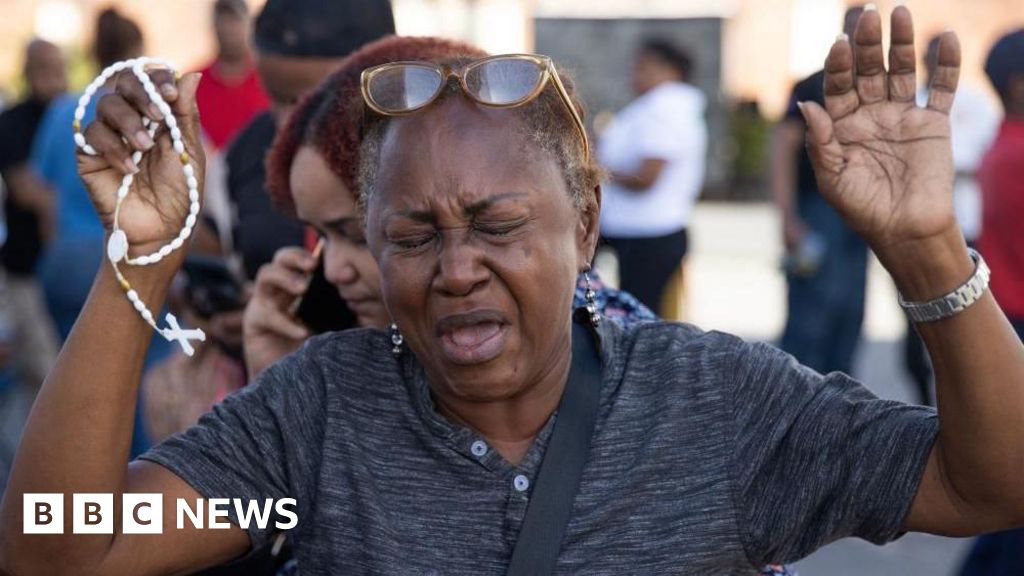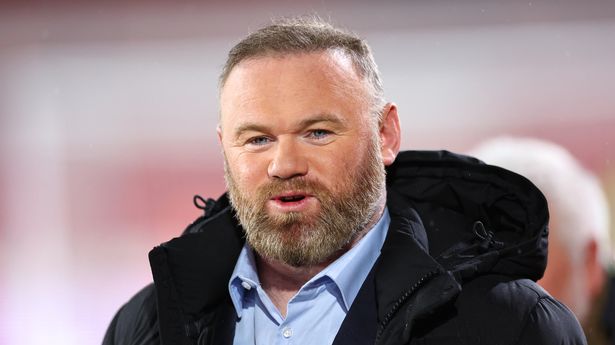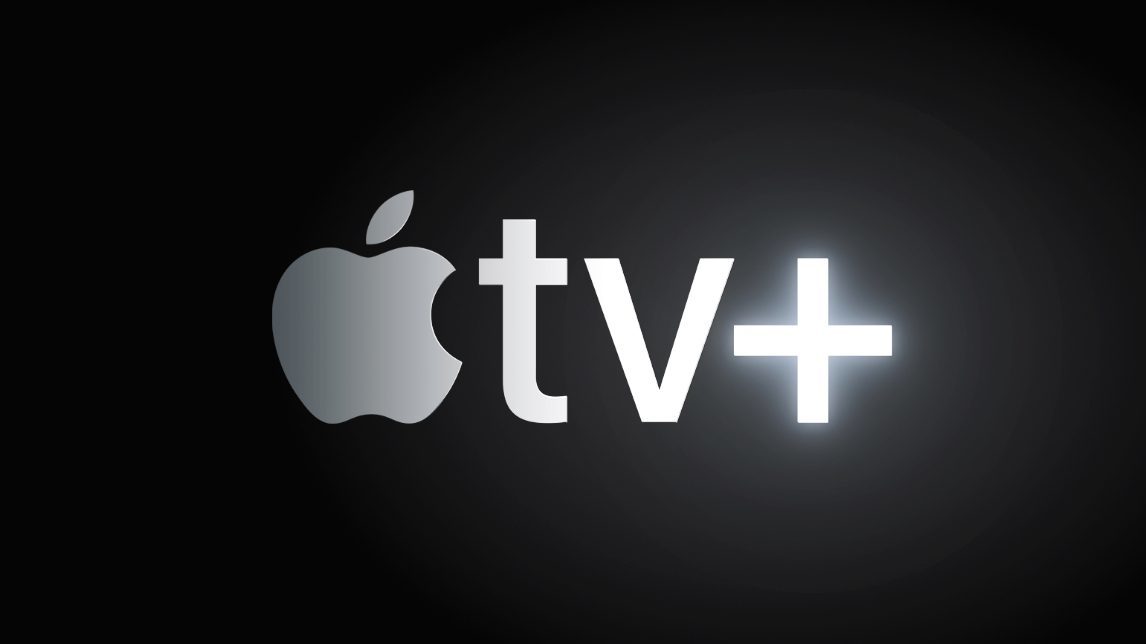There have been frustrations virtually from the moment Russia’s invasion began in February 2022, but policymakers in Washington, Kyiv and around Europe said tensions have grown sharper in recent weeks as Russia has seized the initiative on the front lines and started recapturing territory liberated earlier in the war.
The sharpest battlefield disagreement in recent weeks has been whether Ukraine can use donated weapons to strike targets on Russian soil. Until it shifted policy on Thursday, the Biden administration had strictly prohibited Ukraine from using U.S. weaponry to do so because it feared that the heavy U.S. involvement required to operate the weapons could escalate the war into a direct conflict between Washington and Moscow.
The Biden administration Thursday agreed to allow Ukraine to use U.S. weapons to make limited cross-border strikes on Russian forces that have been threatening Ukraine’s second-largest city, Kharkiv.
Some NATO leaders, including the foreign ministers of Finland and Canada, had pointedly broken with the United States on Wednesday by publicly declaring that they had never prevented Ukraine from using their donated weapons to strike targets on Russian soil, joining France and NATO Secretary General Jens Stoltenberg in saying that Ukraine has the right to do so. Germany and Italy have sided with the U.S. reluctance.
The disagreement over strikes on Russia — even amid the slowly changing policy — is just one example of a broader disconnect between and among Ukraine and its most important military backers over how to deal with the grinding war as Ukraine’s battlefield position continues to weaken. Russia shows no sign of relenting in its bid to occupy and annex four southeast Ukrainian regions and to push beyond if possible. It already seized and illegally annexed Ukraine’s Crimean Peninsula in 2014.
The mounting disputes reflect how a $61 billion package of military assistance approved by Congress last month after months of delays has yet to stabilize Ukraine’s battlefield vulnerability, though U.S. officials say that weapons deliveries should partly ease problems within weeks. Still, Ukrainian leaders are heading into this summer’s intense fighting season at odds with some of their biggest military backers over an array of issues.
The United States and many European nations are also split on matters that include Ukraine’s path to NATO membership — Washington remains cautious — and whether to use frozen Russian assets to fund assistance to Kyiv, an effort the United States and Ukraine support and Europeans largely oppose.
Ukrainian President Volodymyr Zelensky has not shied away from direct attacks on President Biden, telling reporters in Brussels on Tuesday that if the U.S. president skips a Ukrainian-organized peace summit next month in Switzerland, as is likely, “his absence will only be applauded by Putin, personally applauded by Putin, with a standing ovation.”
The meeting in Switzerland does not include Russia, and officials in Moscow have dismissed it as political theater with no chance of delivering an agreement to end the invasion. Ukrainians want to use it to secure broad international backing for their vision.
Zelensky’s anger hardly is reserved for the White House alone. Diplomats and other officials in Kyiv noted that the president has ousted some senior Ukrainian officials who were viewed as being closest to Washington in recent weeks.
And after Secretary of State Antony Blinken played guitar at a Kyiv bar during a visit earlier this month — a performance of “Rockin’ in the Free World” that was intended to demonstrate support — many Ukrainian officials close to Zelensky derided the performance as insensitive.
Some diplomats said that criticism might be another effort to push back at U.S. leaders after Blinken used his visit to redouble demands that Ukraine fight corruption. Ukraine has taken numerous steps to fight graft in recent years, which they insist are not sufficiently recognized in the West.
U.S. officials insist that the core aspects of the relationship remain strong, pointing to a deep working relationship between Washington and Kyiv that includes U.S. military assistance. Biden and Zelensky are expected to meet next month in Italy, and officials are working on a security agreement with Kyiv that will offer military aid for years to come.
But new fissures appear to emerge daily. On Wednesday, a U.S. official said Washington had expressed concerns to Kyiv over Ukraine’s strikes — using its own weapons — on Russian radar stations that provide conventional air defense and early warning of nuclear launches by the West.
These types of public concerns and criticism typically are used by the White House to signal to Moscow that it does not view the war in Ukraine as a direct fight between the United States and Russia — and wants to avoid one — even though Russian President Vladimir Putin, other senior Russian officials and Kremlin propagandists routinely say that Russia, in Ukraine, is fighting the United States and NATO.
Any disagreements between the Zelensky and Biden administrations are picked up with glee by Russian policymakers, who have long sought to amplify and exploit any cracks in Western support for Ukraine.
“The President of Ukraine isn’t … happy with the decision of the #U.S. President not to participate in the so-called summit in Switzerland on #Ukraine,” Mikhail Ulyanov, Russia’s envoy to international institutions in Vienna, wrote on X. “Kiev dictates to the West what and when to do. The West tolerates it,” Ulyanov added, using the Russian spelling of the Ukrainian capital, which typically infuriates Ukrainians.
This article is based on interviews with 25 Ukrainian, European and U.S. policymakers in Kyiv, Washington and Europe. Many spoke on the condition of anonymity to allow a frank discussion of sensitive diplomatic and security issues.
Some of the disagreements stem from natural tensions that arise within a partnership that has had to endure more than two years of war and a steadily rising Ukrainian death toll, officials said. But other fights appear to be more fundamental, especially disagreements over how much to focus on corruption during wartime. Policymakers warn that long-term planning may be elusive.
“We are seeing that Russians are getting more and more assertive,” Latvian President Edgars Rinkevics said in an interview. He said that failing to push back Russia will ultimately fuel instability across the region.
“You see all sorts of small provocations that, frankly, you have to figure out how to deal with,” he said, referencing allegations about possible Russian sabotage and arson across Europe and maritime border disputes in the Baltic Sea and with Estonia.
Russians “see that they can continue,” he said. “So my question is, what are those reasons to believe that allowing Ukraine to hit legitimate military targets is escalatory? If there is good reason to be worried, then I haven’t heard the argument.”
Ukrainian leaders say that the U.S. restrictions against striking Russian territory enabled the Kremlin this spring to build up forces on its own soil and attack Ukraine’s second-largest city, Kharkiv, knowing that Ukrainians’ hands were tied.
“The Russian strategy right now is quite understandable. They’re trying to take as much territory as they can to annihilate our forces and find our weak points,” said Oleksandr Lytvynenko, a senior Ukrainian security official who is the secretary of the country’s National Security and Defense Council.
“Americans think that they should avoid escalation with Russia by creating zones of ambiguity, but it provokes Russia. Russia needs to have very clear lines. A gray zone is just an invitation to try,” Lytvynenko said.
Some Biden administration officials say that it is understandable that Ukrainians are frustrated after waiting seven months for Congress to approve military aid. Any further delay, they say, could have led to a collapse of Ukraine’s front lines. Kyiv remains critically short of soldiers, weapons and ammunition.
U.S. military aid for this year is intended to help bolster the country’s front line defenses and help it hold on to territory currently within Kyiv’s control, ideally exhausting Russian forces as they attack and seek to advance against minefields and other traps.
Ukraine has had significant success pushing back the Russian navy in the Black Sea and in striking Crimea, reducing the Kremlin’s ability to menace the Ukrainian mainland.
“I’m not going to tell you there isn’t ever friction as we wrestle with these critical and challenging pressures of Russia’s full-scale invasion,” a senior U.S. official said. “The depth and breadth of our partnership is sufficient that we can manage disagreements about tactics and find the best way forward as strategic partners.”
Next year, U.S. planners say, Ukraine will have narrowed its personnel shortfall by training a new crop of conscripts. It will also have modern F-16 fighter jets from Western backers, which are expected to arrive this summer.
Also, Russia’s defense industry may have peaked or plateaued by then, American officials say — all reasons to think Ukraine might be in a stronger position, potentially increasing its leverage to impose peace terms in negotiations with Russia, should Ukraine desire it, they say.
But even the thought that negotiations with Moscow are possible demonstrates a serious gap in thinking among top officials in Kyiv and Washington. Many Ukrainians insist that Putin cannot be trusted to uphold any cease-fire agreement, given his oft-stated intention to expand control of Ukrainian territory.
Ukrainian officials also worry about the extensive damage Russian bombing has done to Ukraine’s energy grid, which has forced Ukraine to impose morale-sapping temporary blackouts. The Ukrainians also fear that Western interest in their cause is waning. And some voice concern that a new law to lower the draft age by two years, to 25, will not sufficiently remedy a critical shortage of soldiers.
“I would not build up a strategy on the basis that in a year we will be stronger,” one senior Ukrainian official said.
Another senior Ukrainian official, speaking of the country’s conscripts, said: “They’re not trained, they’re not motivated, they’re not equipped.”
The potential cost of failure is significant. At worst, Russian forces could break through Ukrainian lines and capture significant swaths of territory, including major population centers, officials say, potentially forcing Ukraine to sue for peace on very weak terms.
That could mean even worse problems for Europe and the United States.
“Ukraine is defending a huge part of NATO states, of E.U. states,” said Mykola Davydiuk, a Ukrainian political analyst. “We’ve become a wall. We don’t want to become a gray zone.”
Ukrainians, however, say they need more air defenses and to be allowed to hit targets in Russia.
“We believe in us, but you don’t,” another senior Ukrainian official said, referring to the Americans. “This is the biggest issue right now in our relationship.”
Some of the tensions were clear during Blinken’s trip to Kyiv earlier this month. The visit was intended to deliver a supportive message to Ukrainians — but he also told leaders that they needed to do more to combat corruption.
“Ukraine’s defenses against corruption have to be just as strong as its military defenses,” Blinken said in a speech focused on the country’s future. Ukrainian leaders took exception. In a meeting with Zelensky, the Ukrainian president bristled, according to officials familiar with the interaction.
Afterward, Ukrainian Foreign Minister Dmytro Kuleba said Washington’s focus was out of step with the problem.
“If we were as corrupt as the perception says,” Kuleba told reporters after a meeting with Blinken, institutions such as the European Union and International Monetary Fund “simply wouldn’t be giving us any money.”
U.S. officials — and some Ukrainian ones — have been alarmed in recent weeks by the targeting of reformist officials who were willing to battle corruption inside their own ministries and who appeared especially close to Washington.
The dismissal this month of deputy prime minister Oleksandr Kubrakov, who had been focused on infrastructure and rebuilding Ukraine, was especially alarming, U.S. and European officials said.
The coming months will bring more flash points. European elections in June are likely to bolster far-right forces that are skeptical of Ukraine’s path to joining the European Union. A NATO summit in Washington in July is unlikely to offer Ukraine the clear track toward alliance membership that Kyiv desires.
Each side now says the other may not have a clear path to victory. “It looks like their GPS is jammed,” a second senior European diplomat said of Kyiv’s leadership.




















Discussion about this post